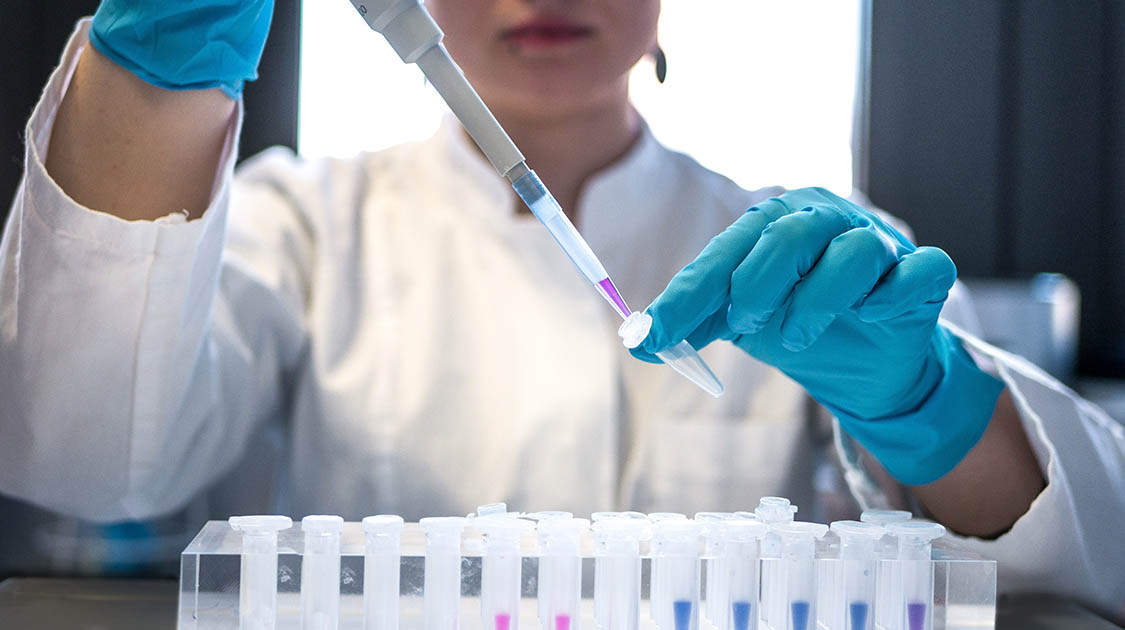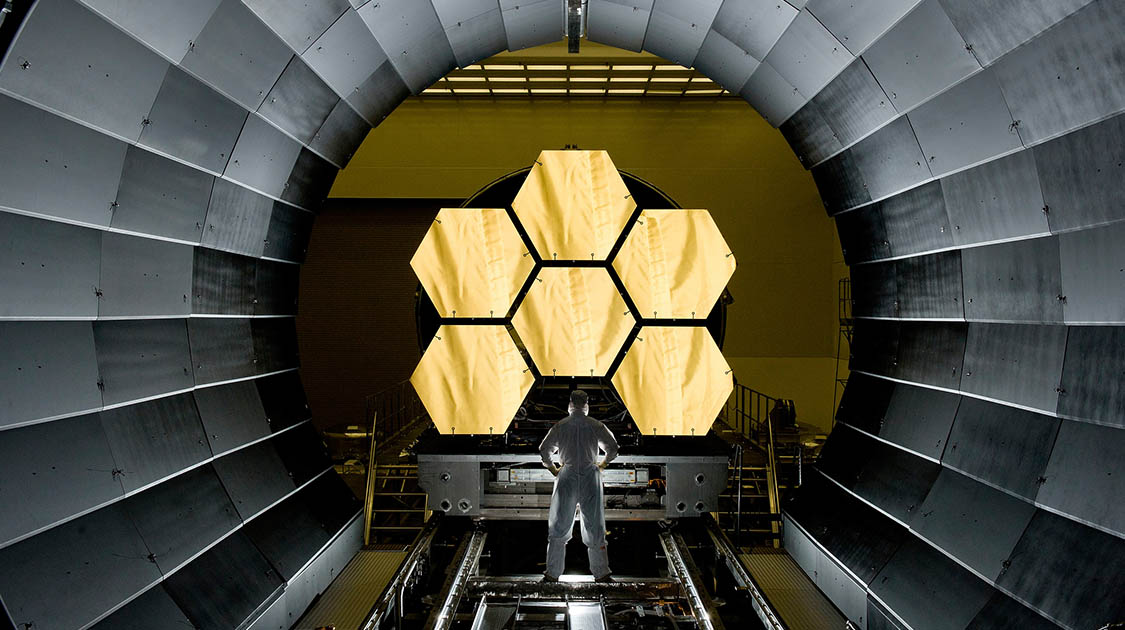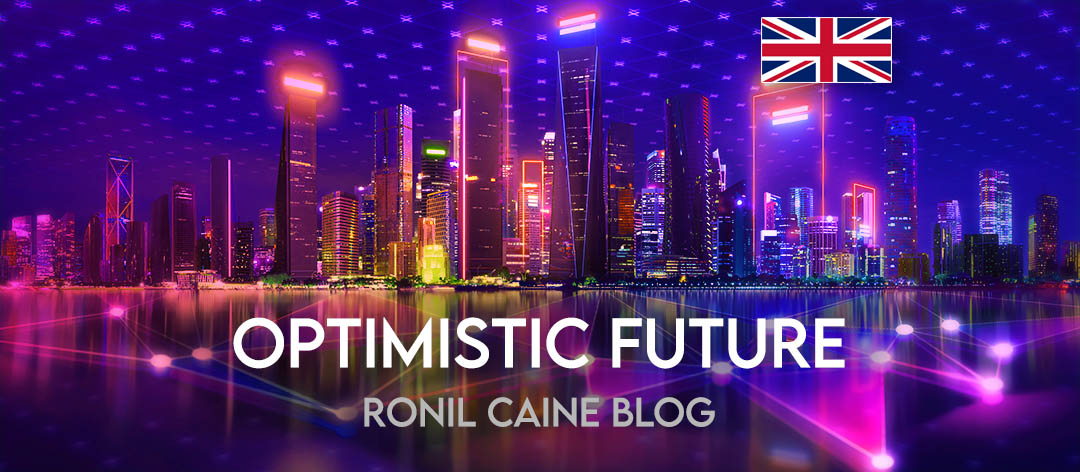Instead of the many alarmist news sites and exaggerated experts, let’s take a look at the big picture of where civilization is actually heading! Is life on Earth better or worse than before? What will be the future of humanity? If we want to get a real picture, it is worthwhile to focus on the development trends and examine the inevitable things. I highlighted these in capital letters.
What is inevitable?
Everything that humanity is working hard to solve is inevitable. It is inevitable because we have proven countless times throughout history that sooner or later, we will find a solution to everything, it is just a matter of time. What is an idea or a technology in its infancy today will work in the future as dreamed. It will be cheap, available, and widespread.
ROBOTIZATION, automation, for example. It is already a part of our lives, and it is spreading and developing. In time, we will have a robot for everything, which performs the given task better than anyone else. In the future, robots will be cheap, easy to operate and common.
SMART DEVICES will become faster, simpler, and more convenient. Over time, all objects will become smart, and their range of functions will continue to expand. They also communicate with each other independently, and we will be able to control all of them in several ways.
The development of ALGORITHMS and ARTIFICIAL INTELLIGENCES (AI) will bring the most precise analyses and planning, based on which we will know much more precisely what we need to do to achieve certain goals. According to the latest observations, a human together with an AI is more effective than either of them individually. This will give enormous impetus to planning and development in the coming decades. Artificial Intelligence will not become self-aware, and won’t kill us all, like in the movies. It’s only a hype, a clickbait.
What is EXTRA, special, luxury today will be basic in the future. The first computers were used by the military and were huge and expensive. Today, everyone has one in their pocket, and we can access all of humanity’s knowledge with it. Clothing, food, electricity, technology, architectural solutions – everything has been and will be like this.

In the future, we will find solution to all our problems we have today (Photo: Julia Koblitz / Unsplash)
Why do we perceive the world wrong?
The media likes to distort reality (even credible sources), they highlight bad news because more people click on them, and their success is measured in clicks. As an evolutionary reflex, people look for and examine trouble, danger, and bad news: what used to be the footprints of a predator around a camp is now war-accident-terrorist news on the Internet. We are watching: is there a danger lurking on us?
The essence of movies and books is to deviate from reality, that’s what makes them exciting, and that’s how they entertain us. But just as sharks won’t become bigger and smarter, and won’t prey on humans, so the world won’t be destroyed every week due to some huge disaster, there won’t be a world war, and we won’t be wiped out by pandemics.
Have you ever had the feeling that the news said that something big was going to happen, that serious, difficult times were coming: e.g. epidemic, shortage, financial crisis, etc., but then it was not as severe as predicted? The reason for this is that the predictions might even have been true (though the media like to overact), but in the meantime there were a lot of people working on the solution, so in the end its course was milder. However, this is not reported in the news, because it is already boring and requires a lot of research. So they let it slip away and look for the next big shot instead.
The other reason is that when we learn something about the present, that knowledge is only momentary and quickly becomes outdated. For example, we read that solar panels are not efficient enough or that certain diseases have a high death rate. A few years pass and these numbers are quite different (mostly improving). Solar panels have become a thousand times more efficient; death rates have dropped significantly. Everything is evolving, but we can’t keep updating all the information in our heads.
Global warming and the climate crisis are a serious matter. Everyone is ringing the alarm, which is very right. However, the doomsday scenarios outlined 10-20 years ago do not want to be realized. The reason is that thousands of volunteers, scientists, researchers, engineers, and even politicians are working to stop climate change and mitigate its harmful effects. In 2021-2022, for example, companies and individuals invested 70 billion dollars in clean energy start-ups.[1] Global green energy investments reached $1.4 trillion in 2022.[2] These were hardly foreseen by those who predicted a climate catastrophe for the 2030s twenty years ago. „We’re much further along than I would have predicted a few years ago on getting companies to invest in zero-carbon breakthroughs.”[3] —Bill Gates.
If all goes well, thanks to technology, smart, well-intentioned people and large corporations with long-term planning, fixing the earth’s climate won’t take longer than derailing it.
So why should we be optimistic about the future?
„We should be optimistic not because we believe that our problems are smaller than we thought. We should be optimistic because we believe that our capacity to solve problems is greater than we thought.”[4] —said Kevin Kelly, futurist, founding executive editor of Wired magazine.
If we look at the history of mankind on a time scale of 50-100 years, we always see very serious development and improvement. Medicine has triumphed over disease, peace and cooperation over warfare, the spread of education over religious and tribal prohibitions, technology over distance. The mantra „everything was better back then” never held true. Maybe there are things that were better (?), but by no means „everything”. Movies, books, and family anecdotes usually make the picture in our head nostalgic and romantic. The truth is that “over the last few decades, there have been far fewer people in extreme poverty, less child mortality, less crime, epidemics, hunger, child labor, fatal natural disasters, and plane crashes. We have never lived in such wealth, safety and health.”[5] „Development is not a matter of faith or optimism, but a historical fact.”[6]—Steven Pinker. „If you had to choose which era of human history you would live in, you would choose this one.” [7]—Barack Obama.
In the future, truth will win over disinformation, space exploration over interplanetary distances, self-driving cars over road accident statistics, sustainable, cheap and environmentally friendly energy over environmentally damaging expensive energy, and so on. It simply cannot be otherwise, because, contrary to the media’s worldview, there are MORE GOOD PEOPLE on Earth, smart scientists, engineers, geneticists, doctors, thinkers, programmers, inventors, than fake news spreaders, flat earthers, undereducated, malicious, selfish people, who, moreover, become less and less selfish as everyone gets more and better of everything.
According to Dutch historian Rutger Bregman, PEOPLE ARE FUNDAMENTALLY RIGHTEOUS. He came to this conclusion after a thorough examination of the world’s most famous tragedies and social psychological experiments. However, the media, religions and those in power have always tried to banish this fact from public opinion. [8]This means that it is good for the world’s leading forces if everyone thinks that people are evil, selfish, would take each other’s lives, trample each other, if they did not lead us according to their civilized rules. However, as a result of numerous scientific experiments, historical disasters and crises, it has been proven that this is not true. „The myth that humans are naturally selfish, aggressive and prone to panic persists. […] In reality, the opposite is true. […] … we are complex personalities with both good and not-so-good qualities. It’s just a question of which qualities we strengthen in ourselves.”[9] Along with all this, the religions, big companies and governments say that everything will get better and better, but they just add that for this they need to remain the religions, big companies and governments.

The James Webb telescope, one of the greatest achievements of Humankind (Photo: NASA/MSFC / David Higginbotham )
The twilight of pessimism
Bad things always happen fast, they get more attention, „they spread 5-6x faster”[10], good things are mostly boring news because they happen slower. „Good things take time”—Kevin Kelly. If an alien (who doesn’t know the countries and doesn’t understand the news) wants to broadcast about wars on Earth, the chances of him running into an armed conflict on the planet are extremely low, he is more likely to find people living peacefully (almost) everywhere.
It is also worth being optimistic because the pessimistic forecasts of the past hundred years have not come true at all. Earth didn’t overpopulate, we didn’t destroy the planet, we didn’t wipe ourselves out with A-bombs, anarchy didn’t prevail, epidemics didn’t overwhelm the planet, and none of the conspiracy theories turned out to be true. The next time someone tries to take our good mood away with a pessimistic vision of the future, let’s be skeptical.
There is quite a bit of material on the internet about pessimism. Few credible people stand up and suggest that we should shut up and hide because the world is a horrible place, that we should not trust anyone because everyone is evil and selfish. „Pessimism has never won any battle, either in peacetime or in war.”[11]—Dwight D. Eisenhower. Let’s admit it, a pessimistic worldview is far more ridiculous than a naively optimistic worldview. Thanks to globalization and the rapid spread of information, not only fake news and illogical conspiracy theories spread like fire, but also positive thoughts, thus optimism.
What will the future be like?
There are things we cannot foresee. The whole thing can be disrupted by any technological innovation, invention, agreement between countries. No matter how much we analyse the data, and no matter how much we know about everything that happens in the world, the effects of some things, events, and inventions only become significant later. The impact of the Internet and the smartphone on our lives is enormous, which no one could foresee. Soon Artificial Intelligence (together with humans) can plan a series of exciting things for us. We do not know what awaits in the next hundred years, but on a large scale the trends listed above are clearly visible, and where we are going will not change.
We cannot foresee the future of capitalism either, but it is certain that the world economy and the competitive sphere, as well as consumption as one of the engines of the economy, will have to face serious challenges. If in the future energy and raw materials become cheap or free, and the world becomes more and more cooperative instead of competitive, then money may slowly lose its power and capitalism may lose its dominant role.
It is worth thinking about the future in the same way that we look at the present compared to the past. It is difficult for us to understand the speech of people who lived in 1920s, and those people could not even imagine that video conferencing or electric vehicles would become possible, and that CERN and the James Webb telescope would be built. This is exactly how we are compared to people living a hundred years from now: we cannot imagine what they will invent and build by then, they will not understand our speech perfectly, and their technology would seem like magic to us now.
The future is not a state, there is NO END TO DEVELOPMENT. We cannot arrive at either utopia or dystopia. „The trouble with dystopian worlds is that they are not sustainable.”[12] —Kevin Kelly. The future will also be a continuous development (protopia[13]), just like any era of humanity. In such a future, people can actively work to improve their lives, and society is able to gradually become better through the freedom of its members. This vision does not mean that everything will be good for everyone, but that it is not the current state of things that matters, but the mutually desirable direction of development.[14]
What is a solution, problem, invention, or rule today is by no means final, but one of the stops in a development story, if you like, an opportunity, a door to further solutions, problems, inventions, and rules. That is why it makes no sense to say that it is bad or not good enough, since it is not final. It may not be good enough now, but the point is progress, trying, moving forward. „Success is a long-term prospect, but it starts with actions we take now.” [15]—Bill Gates.
Optimists are usually labeled as naive and ridiculed. In fact, humanity has always been an optimist. If we weren’t, we wouldn’t plan long-term, we wouldn’t have children, we wouldn’t work on the development of technologies or research new possibilities and solutions. „In the long term, the future is decided by the optimists.”[16] —Kevin Kelly.
However, optimism does not mean that everything will be fine anyway, so we can sit back. „Optimism detached from reality can lead to excessive risk-taking, economic collapse, and poor planning.” [17]—Tali Sharot. Optimism means that we can imagine a better world and make it happen. „Optimism is not only related to success, it leads directly to it.”[18] —Tali Sharot. So everyone should work on it and add what they are best at. Development is a process that is about constant problem solving.[19] All in all, progress is unstoppable, and in the long run the world will still get better.
Share on FacebookSources:
[1] The future our grandchildren deserve, Bill Gates, gatesnotes.com (https://www.gatesnotes.com/About-Bill-Gates/The-Year-Ahead-2023) (2022. 12. 29.)
[2] These charts show record renewable energy investment in 2022, Stephen Hall, World Economy Forum (https://www.weforum.org/agenda/2022/07/global-renewable-energy-investment-iea/) (2022. 12. 29.)
[3] The future our grandchildren deserve, Bill Gates, gatesnotes.com (https://www.gatesnotes.com/About-Bill-Gates/The-Year-Ahead-2023) (2022. 12. 29.)
[4] The Future Will Be Shaped by Optimists, Kevin Kelly, TED (https://www.youtube.com/watch?v=FrqBWQ-mVEc) (2023. 01. 05.)
[5] Humankind: A Hopeful History, Rutger Bregman, Hungarian translation, HVG Könyvek, 2020
[6] Is the world getting better or worse? A look at the numbers | Steven Pinker, TED, (https://www.youtube.com/watch?v=yCm9Ng0bbEQ) (2022. 12. 24.)
[7] Nothing Is More Responsible for the Good Old Days Than a Bad Memory, Joakim Book, Human Progress, (https://www.humanprogress.org/nothing-is-more-responsible-for-the-good-old-days-than-a-bad-memory/) (2022. 12. 28.)
[8] Humankind: A Hopeful History, Rutger Bregman, Hungarian translation, HVG Könyvek, 2020
[9] Humankind: A Hopeful History, Rutger Bregman, Hungarian translation, HVG Könyvek, 2020
[10] Be optimistic and create #thegoodfuture – because your attitude contains your Future, Gerd Leonhard (https://www.youtube.com/watch?v=bB-ZNfCp8uA) (2023. 01. 05.)
[11] Radio and Television Address to the American People Prior to Departure for the Big Four Conference at Geneva, 1955, The American Presidency Project (https://www.presidency.ucsb.edu/documents/radio-and-television-address-the-american-people-prior-departure-for-the-big-four) (2022. 12. 27.)
[12] Will civilization collapse? | WIRED’s Kevin Kelly, Big Think (https://www.youtube.com/watch?v=nJ0VmT0D8ew) (2022. 12. 24.)
[13] What’s The Difference between Utopia, Eutopia and Protopia?, Hanzi Freinacht, metamoderna.org, (https://metamoderna.org/whats-the-difference-between-utopia-eutopia-and-protopia/) (2022. 12. 27.)
[14] What’s The Difference between Utopia, Eutopia and Protopia?, Hanzi Freinacht, metamoderna.org, (https://metamoderna.org/whats-the-difference-between-utopia-eutopia-and-protopia/) (2022. 12. 27.)
[15] The future our grandchildren deserve, Bill Gates, gatesnotes.com (https://www.gatesnotes.com/About-Bill-Gates/The-Year-Ahead-2023) (2022. 12. 29.)
[16] Optimists Decide the Future | „Wired” Founder Kevin Kelly | Big Think (https://www.youtube.com/watch?v=Emd6rSyebFY) (2022. 12. 24.)
[17] The optimism bias | Tali Sharot, TED (https://www.youtube.com/watch?v=B8rmi95pYL0) (2022. 12. 24.)
[18] The optimism bias | Tali Sharot, TED (https://www.youtube.com/watch?v=B8rmi95pYL0) (2022. 12. 24.)
[19] Is the world getting better or worse? A look at the numbers | Steven Pinker, TED, (https://www.youtube.com/watch?v=yCm9Ng0bbEQ) (2022. 12. 24.)
Books:
On the Future, Martin Rees, Hungarian translation, Akkord kiadó, 2020
Homo Deus, Yuval Noah Harari, Hungarian translation, Animus kiadó, 2020
Factfulness: Ten Reasons We’re Wrong About the World, Hans Rosling et. al., Hungarian translation, Libri Kiadó, 2018
BetweenBrains: Taking Back our AI Future, George Tilesch, Omar Hatamleh, Hungarian translation, Libri, 2021
Additional websites:
addictions.com
medicalnewstoday.com
who.int

